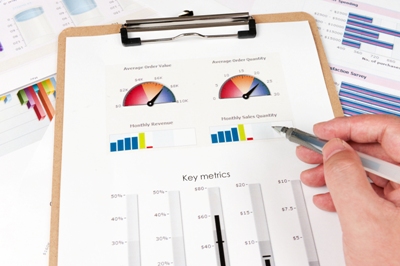Who is 2020 CFO? The CFO’s are now moving from accounting to accountability and not just for...
 I have been thinking long and hard about what I need to do to stay relevant as a finance professional for the next ten, twenty, or thirty years, and after hours of research I want to share my thoughts and views on the skills future finance professionals will need in this ever-changing technology-driven era.
I have been thinking long and hard about what I need to do to stay relevant as a finance professional for the next ten, twenty, or thirty years, and after hours of research I want to share my thoughts and views on the skills future finance professionals will need in this ever-changing technology-driven era.
Luca Pacioli, "The Father of Accountancy" published his version of bookkeeping and finance in 1494, explaining the concept of double entry, and famously said people should not go to sleep at night until its debits equal its credits (Smith, M 2013). Now, I am not recommending anyone stays up all night to reconcile their books, but move forward to 500 years and double entry is still one of the pillars of accountancy, however, this alone is not enough and we, as accountants, need to evolve. Technology is changing by the day and the dynamics of business are becoming ever more demanding: Amazon has launched their first supermarket with no tills, Easta, a fast food chain in America, has no human interaction with its customers, and artificial intelligence is changing healthcare in unbelievable ways.
Technology is having an impact on finance departments too, every finance department is striving to automate its month-end tasks, with robots completing reconciliation checks. Predictive analytics will improve decision making to drive better commercial performance and artificial intelligence will improve the accuracy of forecasting. And probably the biggest shift for finance departments will be the move away from month-end, with CFOs managing their finances through daily, continuous accounting, rather than the cyclical month-end and year-end processes. But what do all these changes mean for the future finance professional?
Firstly, they will need to be IT literate and have the ability to use a wide range of IT products, not only excel and financial systems such as SAP, or Oracle. The modern day accountant will need to be a businessman, who can communicate financial information in a clear and concise manner which non-financial people can understand and support its business to achieve their objectives. No longer will financial acumen be enough; it needs to be alongside business acumen. Furthermore, we will need to be analytical, confident with vast amounts data and, again, be able to translate this data into insights that can be acted immediately. Most importantly, accountants need to be customer-centric and be outcome focussed, and not necessarily looking at everything from a financial lens. If you research the most successful companies from the last 15 years, they are customer focussed and have the customers in mind for every decision they make. And to be frank, if the profession does not adapt and continues to be data crunchers, they will be replaced with machines who will be able to replicate the work at smidgen of time and cost.
It is, however, not all doom and gloom, a very positive aspect to the digital revolution is mundane tasks are going to be automated, thus accountants will have more time to work on things which are more intellectually challenging and value adding. It is really an exciting time to be a finance professional, as the world becomes more data-driven, CEOs will be looking to their finance department to leverage the data and find that needle in a haystack that is going to make the difference to the performance of the company. But never forget the basics which Luca Pacioli published all those years ago, and as long as we are prepared for change and embrace the journey ahead, it will be an exciting time to be a financial professional.
Sources:
Smith, Murphy, Luca Pacioli: The Father of Accounting (2013). Available at SSRN: https://ssrn.com/abstract=2320658
Subscribe to
FP&A Trends Digest

We will regularly update you on the latest trends and developments in FP&A. Take the opportunity to have articles written by finance thought leaders delivered directly to your inbox; watch compelling webinars; connect with like-minded professionals; and become a part of our global community.




